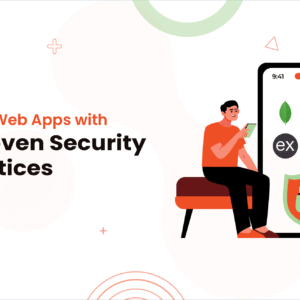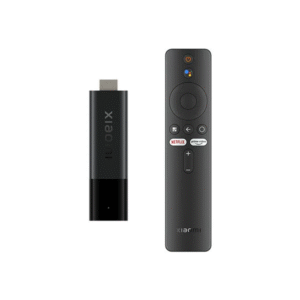Introduction
Singapore has become a global hub for advanced healthcare services, renowned for its state-of-the-art hospitals, medical research, and telemedicine innovations. With the nation’s commitment to being a Smart Nation, healthcare systems are rapidly digitalizing, enabling the seamless exchange of electronic health records, real-time patient monitoring, and AI-driven diagnostics. However, as digital adoption increases, so does the risk of cyber threats. Protecting sensitive healthcare data has become a top priority, and the role of a cloud security service provider in Singapore is crucial in ensuring the confidentiality, integrity, and availability of this information.
The Importance of Securing Healthcare Data
Healthcare data is among the most sensitive and valuable forms of personal information. It includes patient medical histories, diagnostic results, treatment plans, and insurance details. Any breach can have devastating consequences, from identity theft to compromised patient safety. In Singapore, where healthcare systems are closely integrated with national digital frameworks, the impact of a cyber incident could disrupt not only individual hospitals but the entire healthcare ecosystem.
This has prompted healthcare organizations to adopt secure, scalable cloud solutions, supported by expert providers. A cloud security service provider in Singapore plays a critical role in deploying tools and frameworks to safeguard patient records, ensure regulatory compliance, and maintain trust in the healthcare system.
Why Healthcare is a Target for Cyber Threats
Cybercriminals increasingly target healthcare institutions because of the high value of patient data on the black market. Healthcare systems often rely on complex IT infrastructures, where vulnerabilities may exist across different devices, applications, and platforms. Ransomware attacks, phishing attempts, and unauthorized access to patient records are some of the most common threats.
Cloud security providers help healthcare organizations counter these challenges by offering real-time monitoring, threat detection, and automated response mechanisms. Their services are designed not only to defend against immediate threats but also to build long-term resilience against evolving cyber risks.
Cloud Adoption in Singapore’s Healthcare Sector
Singapore’s healthcare institutions have rapidly adopted cloud technologies to manage the growing demand for patient-centric services. Electronic health records, telemedicine platforms, wearable devices, and AI-driven medical research all depend on secure cloud infrastructure. Cloud solutions enable data accessibility, scalability, and efficiency, but they also introduce risks if not properly secured.
A cloud security service provider in Singapore ensures that healthcare institutions can embrace cloud innovation without compromising data security. By integrating security measures directly into cloud infrastructures, providers help hospitals and clinics deliver better patient outcomes while protecting sensitive information.
Key Roles of Cloud Security Providers in Healthcare
Data Encryption and Privacy Protection
Cloud security providers implement robust encryption techniques to secure healthcare data, ensuring that even if intercepted, the data remains unreadable. They also enforce strict privacy controls, ensuring that only authorized personnel can access patient records.
Compliance with Regulations
Healthcare institutions in Singapore must adhere to the Personal Data Protection Act (PDPA) and other healthcare-specific guidelines. Cloud security providers ensure compliance by implementing controls and audit mechanisms that meet regulatory requirements.
Threat Detection and Response
Providers use advanced AI and machine learning algorithms to detect unusual patterns in data traffic. These early warnings enable proactive responses to potential threats before they escalate into breaches.
Identity and Access Management
A vital aspect of healthcare security is ensuring that only the right people have access to sensitive records. Providers offer identity management systems, multi-factor authentication, and role-based access to protect data.
Disaster Recovery and Business Continuity
Healthcare organizations cannot afford downtime. Cloud security providers offer backup and disaster recovery solutions that ensure continuous access to patient data, even during cyber incidents or natural disasters.
Telemedicine and Remote Security
With telemedicine becoming more prevalent, securing remote interactions is vital. Providers safeguard video consultations, data exchanges, and patient monitoring devices, ensuring secure and confidential remote healthcare delivery.
AI and Analytics for Security
Cloud security providers also use AI and predictive analytics to stay ahead of cyber threats. By analyzing past incidents and emerging attack patterns, they can fortify healthcare systems against future risks.
Challenges in Securing Healthcare Data
Despite advancements, several challenges remain in securing healthcare data in Singapore:
- The sheer volume of healthcare data makes it a lucrative target.
- Legacy systems integrated with new cloud platforms may introduce vulnerabilities.
- The growing use of IoT medical devices increases potential entry points for attackers.
- Balancing accessibility for healthcare professionals with strict security measures can be complex.
This is where a cloud security service provider in Singapore becomes indispensable, offering expertise and solutions tailored to the unique needs of the healthcare sector.
Top Service Providers for Cloud Security in Singapore
Healthcare organizations in Singapore can choose from several leading service providers specializing in cloud security. These companies provide the infrastructure and expertise needed to secure healthcare data effectively.
- Microsoft Azure – A leading cloud platform with built-in advanced security tools, compliance certifications, and AI-driven threat intelligence, offering comprehensive solutions for securing healthcare data.
- IBM Cloud Security – Known for its enterprise-grade security and hybrid cloud offerings, IBM provides advanced encryption, compliance tools, and real-time threat monitoring suitable for large healthcare institutions.
- Amazon Web Services (AWS) – A global leader in cloud computing, AWS offers a wide range of security solutions, including HIPAA-compliant infrastructure, identity management, and disaster recovery services.
- InTWO Company – Specializes in delivering Microsoft Azure-based solutions in Singapore with a strong focus on healthcare. InTWO provides end-to-end cloud security, compliance assurance, and customized solutions to ensure the protection of sensitive healthcare data while enabling digital innovation.
Conclusion
Healthcare is one of the most sensitive and regulated sectors, and in Singapore’s digital-first ecosystem, protecting patient data is paramount. With increasing threats from cybercriminals, the expertise of a cloud security service provider in Singapore has become essential. From encryption and compliance to AI-driven threat detection and disaster recovery, these providers are enabling hospitals, clinics, and research institutions to innovate securely.
By partnering with top service providers such as Microsoft Azure, IBM, AWS, and InTWO Company, healthcare organizations can confidently adopt cloud technologies while safeguarding patient trust and ensuring compliance. In a nation that strives to be at the forefront of both healthcare and digital innovation, cloud security is not just a technical requirement—it is a foundation for better, safer, and more reliable healthcare delivery.






